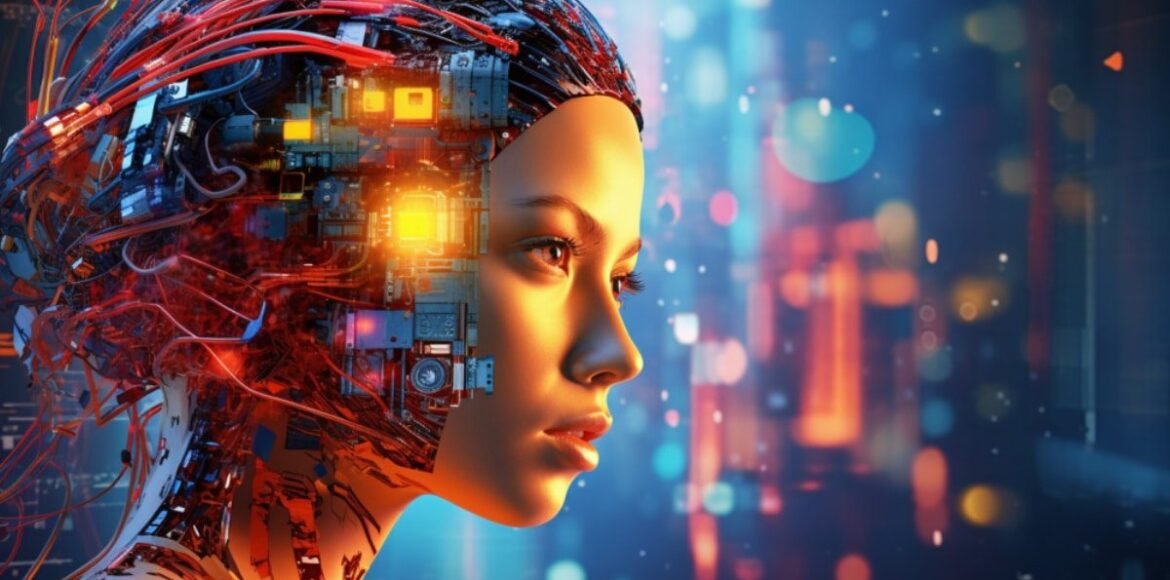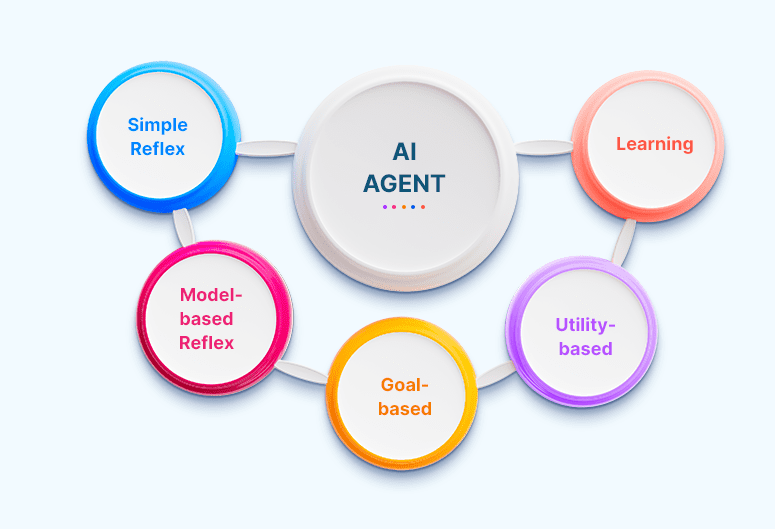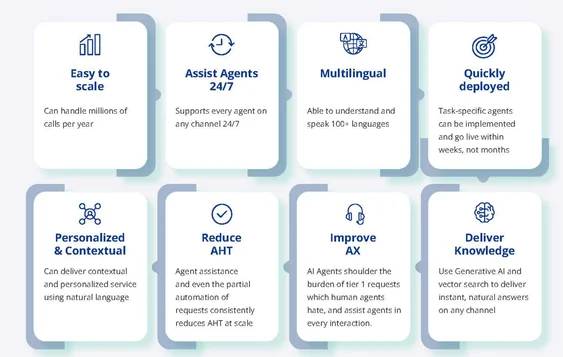What Are AI Agents And What Are They Used For?

AI agents are intelligent software entities capable of autonomously performing tasks, making decisions, and interacting with users or systems to achieve specific objectives. Unlike traditional automation tools or rule-based chatbots, AI agents use large language models (LLMs), memory, and decision-making frameworks to operate more like digital collaborators. They perceive information, reason about it, and act independently—transforming how people interact with technology and accomplish goals.
Core Capabilities of Modern AI Agents
Autonomy & Reasoning
At the heart of every AI agent lies the ability to reason and operate autonomously. These systems are not hard-coded to follow fixed rules; instead, they dynamically analyze their environment, interpret user inputs, and make decisions on the fly. Through the use of LLMs like GPT-4, Claude, or Gemini, AI agents can break down goals into sub-tasks, evaluate options, and choose the most efficient course of action without human intervention. This makes them ideal for handling complex or ambiguous tasks where pre-programmed logic would fall short.
Memory & Learning
AI agents go beyond short-term interactions by leveraging long-term memory. They can store user preferences, previous conversations, task history, and contextual data, enabling them to improve performance over time. This capability allows for deeply personalized experiences. For instance, a customer support agent can remember past tickets, or a personal assistant can recall your favorite travel preferences. Advanced memory systems also enable few-shot learning, letting agents adapt after just a handful of interactions.
Tool & API Integration
Today’s AI agents don’t just talk—they take action. They can interact with external tools, APIs, databases, and operating systems to complete real-world tasks. For example, an agent can book a flight, send an email, update a CRM, or trigger workflows in business apps like Slack, HubSpot, or Notion. This actionability turns agents into practical automation tools, bridging the gap between conversational AI and operational execution.
Collaboration
AI agents can also collaborate with other agents or humans to solve tasks more efficiently. In a multi-agent system, one agent may act as a project manager delegating subtasks to specialized agents—like one for data analysis, one for writing, and one for scheduling. This team-based architecture mirrors human collaboration, enabling agents to handle sophisticated processes that span multiple domains or applications.
From Chatbots to Autonomous Workers
While traditional chatbots follow pre-defined scripts or workflows, AI agents represent a leap forward by offering goal-oriented, autonomous task execution. Instead of simply responding to queries, agents proactively understand the user’s intent, decompose tasks, and execute steps independently. For example, instead of answering “how do I file taxes?”, an agent can gather your documents, calculate your taxes, and file them on your behalf. This transition from reactive assistants to proactive workers is what makes AI agents a transformative force across industries.

Real-World Use Cases
Customer Service
In customer support, AI agents can handle more than just FAQs—they can manage full service cycles. They can authenticate users, look up account details, issue refunds, escalate complex cases, and follow up automatically. This not only improves customer satisfaction but also reduces operational costs. Brands are increasingly replacing traditional chatbot flows with intelligent agents that understand user emotion, provide relevant solutions, and learn from each interaction.
Coding & DevOps
In software development, AI coding agents can analyze codebases, suggest improvements, fix bugs, and even commit updates to repositories. Tools like GitHub Copilot and AutoGPT-powered dev agents act like co-developers, reducing repetitive work and speeding up software delivery. For DevOps, agents can monitor system logs, trigger alerts, and autonomously resolve infrastructure issues—essentially becoming tireless digital engineers.
Finance & Analysis
AI agents are being used in finance to automate reporting, budgeting, and forecasting. For example, a CFO agent can pull data from multiple accounting systems, identify anomalies, generate custom reports, and advise on budget allocations. Agents can also provide real-time insights on KPIs or perform scenario modeling for strategic planning. This level of automation is revolutionizing how financial teams operate.
Cybersecurity
In cybersecurity, agents act as 24/7 defenders. They monitor logs, detect threats, and can even automatically respond to certain attack patterns by isolating compromised systems or revoking user access. By analyzing behavior over time, agents can also spot suspicious activities that traditional systems might miss. With the increasing scale of cyber threats, AI agents provide a crucial layer of real-time, intelligent defense.
Personal Productivity
AI agents can serve as virtual executive assistants—booking meetings, drafting emails, managing calendars, and handling online transactions. Some agents, like OpenAI’s Operator or AgentGPT, go even further by autonomously managing end-to-end processes like planning a trip, buying a gift, or coordinating household tasks. This brings high-level productivity assistance to individuals, startups, and teams without the overhead of human staff.
Agent Architecture and Design
Levels of Autonomy
AI agents vary in their level of autonomy, from simple action-triggering bots to fully autonomous decision-makers:
- Level 0: Rule-based systems that respond to specific prompts.
- Level 1–2: Agents that perform predefined tasks with slight variation.
- Level 3–4: LLM-powered agents with reasoning, memory, and adaptive behavior.
- Level 5: Fully autonomous agents that learn continuously and make strategic decisions independently.
Key Components of an AI Agent
A typical agent includes the following components:
- Perception Module: Converts raw input (text, audio, video) into structured data.
- Planning & Reasoning Engine: Determines the best action path using LLMs and symbolic logic.
- Memory System: Stores long-term and short-term context for personalization.
- Execution Layer: Interfaces with APIs, databases, and apps to perform tasks.
- Feedback & Monitoring: Evaluates outcomes and learns from success or failure.
This modular architecture allows for scalable, customizable, and accountable AI agents.

Benefits and Business Impact
AI agents are transforming operations across sectors with benefits that include:
Productivity Boost
Agents free humans from repetitive, manual tasks, letting them focus on strategy, creativity, and higher-order thinking. Companies deploying AI agents report major gains in efficiency, with teams able to scale operations without scaling headcount.
Cost Savings
By reducing the need for manual labor and minimizing human error, AI agents contribute to significant operational cost savings. They operate 24/7, don’t require breaks, and can handle high volumes of work consistently.
Smart Decision-Making
With access to real-time data and the ability to analyze multiple variables quickly, AI agents support data-driven decision-making. In industries like healthcare, finance, and logistics, this leads to faster responses and better outcomes.
Risks and Considerations
Despite their benefits, AI agents come with risks:
Reliability and Hallucination
LLM-based agents can “hallucinate” or generate false information. Without proper grounding or oversight, they may take incorrect or harmful actions, especially when given too much autonomy.
Security Vulnerabilities
AI agents that can execute code or interact with APIs pose security risks if not properly sandboxed or authenticated. An exploited agent could unintentionally leak sensitive data or make unauthorized changes.
Ethical and Legal Implications
Agents that act on behalf of users raise questions about accountability, bias, and consent. Who is responsible if an agent books a wrong flight or violates company policy? Clear governance and ethical frameworks are essential for responsible deployment.
The Future of AI Agents
As AI agents become more advanced, we can expect them to evolve into intelligent teammates—collaborating with humans and other agents to solve problems, innovate, and drive value. Multi-agent systems, self-improving models, and hybrid AI-human collaboration will become the norm. Whether in customer service, software engineering, or creative industries, AI agents are set to transform how we live and work.



